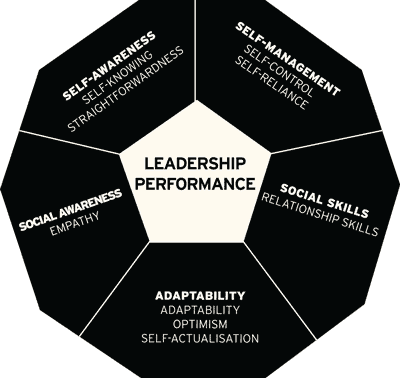Leadership has never been more complex than in recent times, writes Barbara Nugent as she explains how powerful human connection is in the drive towards success.
Having struggled through the recent economic crises, the environment is still unpredictable and volatile. Our once reliable banks and stalwarts like Volkswagen have caused an erosion of trust.
Customers want to buy from organisations to which they feel connected. Your brand is more than just a logo – it represents your passion, honesty and belief in your company and all you do. It creates an emotional contract with your customers and suppliers.
With a high proportion of the workforce being millennials, employees have higher expectations of their employers. They want meaningful work with socially responsible companies.
Intelligence, determination, vision and grit are all qualities associated with good leaders, and are important qualities. But studies over the past 20 years have shown that these qualities are not enough.
Dr Daniel Goleman first coined the phrase ‘emotional intelligence’ in his 1995 book. Since then extensive studies have validated the link between emotional intelligence (EI) and bottom line results. EI is the efficiency with which a person handles themselves and their relationships with others, and how they use that efficiency to benefit themselves and the companies they work for.
The late professor David McClelland found in his research that when senior managers had a critical mass of emotional intelligence, their divisions outperformed yearly revenue goals by at least 20%.
SELF-AWARENESS
While various models of emotional intelligence have emerged in slightly different guises, the skills are very consistent.
Dr Martyn Newman and his organisation Roche Martin devised this model stemming from research involving over 6,500 successful business leaders.
The keystone of emotional intelligence is self-awareness. This means having a deep understanding of one’s own emotions, strengths and weaknesses. People with high self-awareness know how they impact others and understand their own reactions to situations. It means developing conscious behavior which has a positive impact.
Goffee and Jones’ well known article ‘Why should anyone be led by you’ (HBR 2000) encouraged inspirational leaders to sense their instincts, be honest about their weaknesses, practice empathy and be their authentic selves.
All are linked to tapping in to the emotional, soft-skills side of our being and using it to build competitive advantage.
So how can a CEO use their emotional intelligence to engage their workforce, inspire their teams and ultimately improve results?

Not only can great leaders describe what they do at work, they describe why they do it. Many executives openly admit that vision is a ‘fluffy’ concept and nearly impossible to quantify. Professor Mark Lipton researched the impact of having a corporate vision.
His findings show that publicly owned firms who use a vision to guide their growth have significantly higher market-cap growth, top-line and bottom line growth than competitors who do not.
How can a CEO use their emotional intelligence to engage their workforce, inspire their teams and improve results?
Many leaders are able to articulate a vision, but in reality few actually live it on a day-to-day basis. Defining and communicating a vision requires emotional input. It is about expressing values and beliefs, with personal passion and commitment. Many people are ill at ease when it comes to emotional responses in a workplace environment.
The job of the leader is to provide clarity of purpose. A leader who can communicate their own aspirations and articulate the story of the organisation can engage, inspire and mobilise their employees.
Successful businesses have a vision that employees, customers, suppliers and stakeholders can buy into. They will not buy into words pinned up on the wall, but real, tangible passion and emotional commitment to their product or service.
COLLABORATION
Goleman’s studies how direct correlation between leadership style and bottom line results. Coercive and Pacesetting styles have a negative impact on the organisational environment and consequently financial results. These styles have the characteristics ‘do as I say’ and ‘do as I do’.
Employees need to know their work has value and to understand how their work supports the overall goals of the organisation. How employees feel about their employer and their level of engagement strongly predicts their performance.(Source: Gallup, The State of the Global Workplace).
COLLECTIVE MERIT
Decision-making should take place as close to the customer as possible. Thus employees need to be empowered to make decisions with the full support of management. They should also have sufficient knowledge to ensure decisions are in line with the overall strategic goals and be aware of the implications of their decisions.
Leaders who have the self-confidence and adaptability to allow that to happen will see a dramatic increase in employee engagement and similarly an increase in customer satisfaction.
Encouraging team-work and cross functional engagement encourages collaboration. Rewarding collective merit rather than individual engenders greater connection within the company.
AUTHENTIC RELATIONSHIPS
Emotionally intelligent leaders have the ability to regulate their responses, to consider and respond appropriately. Yelling at employees or pounding the desk does not encourage an environment of openness or fairness. If the messenger is inclined to be shot, then who wants to be the messenger?
Many inter-personal issues that occur at work are the result of impulse behaviour.
Employees need to know their work has value and that their work supports the overall goals of the organisation
A leader who embodies the skill of self-regulation creates a workplace where people are open to change rather than fearful. Such employees will try out new ideas knowing that they won’t be castigated if something goes wrong, thus generating a more innovative mindset from which new ideas flow.
Empathy is another way of building strong relationships with stakeholders. Having the ability to put yourself in the shoes of a customer gives you a different perspective. Now you can understand the impact of your business on theirs and can work collaboratively to excel for competitive advantage.
HUMAN CONNECTION
Barbara Nugent, Transilient Coaching
According to Deloitte’s Human Capital Trends 2015 Report – leadership skills, employee engagement and employee performance are the top strategic issues facing Irish organisations today.
All of these skills require emotional input. Many business leaders and companies still do not recognise how powerful human connection is in the drive towards success.
In a PwC 2014 survey of CEOs in 68 countries, 63% said they were concerned about the future availability of key skills. Companies are not developing their pipeline of future leaders.
The good news is that EI can be measured and developed over time. Potential talent with good EI can be spotted. Candidates who believe in self- development, who have curiosity and determination have high potential.
Leaders who consistently develop their own EI have the ability to create that critical mass that McClelland referred to.
Jeremy Daroch, CEO of BSkyB, recently commented that, “Emotional intelligence is the key to supercharging much of the potential of Sky”. He refers to “better self, better leaders, and better business.”

